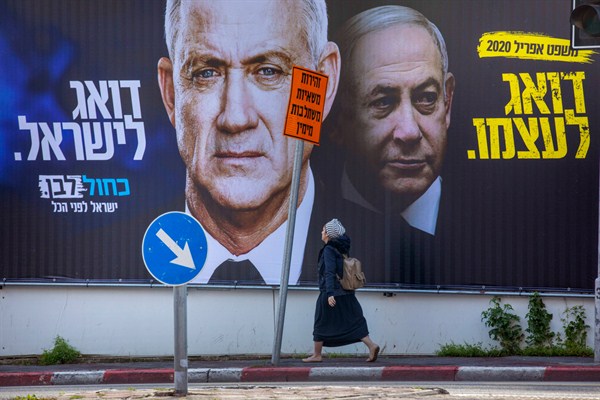Israelis went to the polls earlier this month for the third time in less than a year to elect a new Knesset and hopefully a new government. The unprecedented sequence of elections is a result of a combination of factors that have left Israeli politics deadlocked since last spring.
Prime Minister Benjamin Netanyahu and his conservative Likud party have led Israel’s government for 11 consecutive years, but three high-profile corruption cases against Netanyahu created an impetus for a new opposition party, the center-right Blue and White, to emerge in early 2019. Its platform is constructed not around stark policy differences with Likud, but around replacing Netanyahu. Under the leadership of former military chief Benny Gantz, it established itself as the main opposition force.
After the latest election, a slim majority of 61 members of the Knesset, Israel’s 120-seat legislature, recommended Gantz as the next prime minister, and on that basis, President Reuven Rivlin assigned him to form a government last week. Yet the numbers for Gantz are more complicated than they appear at first glance. If he fails to cobble together a workable coalition—an increasingly likely prospect—or does not capitulate to serving alongside Netanyahu in a unity government, Israel will head toward yet another election later this year.

